- Home
- Dustin Stevens
Fair Trade Page 13
Fair Trade Read online
Page 13
They were without peer, the reason Mira had matriculated north from San Diego to a frigid small town in Oregon.
But that didn’t mean they knew much about how to throw a party, whatever athletic acumen they had offset by the occasional shortcoming of social skills.
“No, really,” Mira said, “I insist. If you don’t want to go in, we don’t have to.”
A matching smile lit my features as I pulled her a bit closer, just millimeters separating our faces. I released my grip on her hand, instead sliding my hands around her back, locking them just above her hips.
“Well, now, while that is a very noble gesture – and one that will be rewarded handsomely later – I cannot in good conscience have you missing out on the social event of the year on my behalf.”
Raising a hand to my face, Mira traced a finger the length of my nose. Continuing to pull it lower, she dragged it over my lips, the feel of it soft against my skin.
“A handsome reward, huh? And what might that entail?”
Opening my mouth to respond, handfuls of answers came to mind, ranging the full spectrum of the rating system. Pausing, I drew in a breath, contemplating how racy to make my response, wondering how much I truly didn’t want to go up the front walk and step inside.
“You two going inside, or you just going to stand out here making us gag all night?”
The voice was one we both knew implicitly. In unison, our smiles melted away, our bodies going rigid as we turned over a shoulder.
Where Nancy Raye had come from, neither of us knew. Dressed in a long peacoat, she had a wool hat pulled down over her bushy blonde hair, a plastic sack in hand. The other was pressed into her hip, her body cocked to the side, like a scolding parent having caught two teenagers after curfew.
To say she and I were mortal enemies might be a bit of an overstatement.
Calling us friends definitely would be.
“Hey, Nancy,” Mira said, her chin tucked up next to my shoulder. “You just getting here, too?”
Taking a step forward, she dropped the hand from her hip, though the accusatory look remained. “I am, though I seem to be in a little more of a hurry to get inside. Sorry to have interrupted.”
It was clear she wasn’t. Standing there, I couldn’t help but wonder if she’d ever actually been sorry about a thing in her life.
“Didn’t expect you to still be around,” she said, flicking her gaze from Mira to me. “Just another baseball star that couldn’t give it up, huh?”
Chapter Thirty-Two
It has been a busy day, but a frustrating one. The trip to Mike Lincoln’s house was successful only in that Detective Malcolm Marsh had been lucky enough to encounter a nosy neighbor that was all-too-happy to share what she knew.
Marsh hated relying on luck. It was sloppy. Lazy police work, the type of thing that would eventually catch up to him, maybe even become a red flag in his file.
And red flags were something he would not abide. Not with his aspirations.
Discovering Lincoln rode with the Wolves had been a stroke of luck, though the trip to the ragged shack they called a bar had been even less fruitful than his house. Bastards wouldn’t even speak directly to him, instead enlisting their lackey bartender to serve as a mouthpiece.
As clear a statement as to what they thought of him and his investigation as anything there could be.
In the wake of it, he and Tinley had driven back to the precinct, neither saying much, each working through the new information in their own way. For his partner, that meant scribbling down notes, drawing lots of circles and arrows, trying to ferret out patterns and connections that may or may not exist
For Marsh, that meant staring out through the windshield, letting his growing vitriol simmer, working through each piece of information he had.
This had all started with Mira Clady, a woman who for some reason was still residing at the coroner’s office. In the time since, her Navy SEAL husband had showed up a couple of times, acted openly hostile, and hosted a growing collection of open wounds.
And now, somehow, the Wolves were involved.
Leaning back in his desk chair, Marsh stares at the screen before him. One elbow propped on the arm of his chair, his smooth head is balanced in his palm, his focus on the files fanned wide.
Twenty minutes earlier, Tinley had ducked out to make a food run, their unusual shift altering traditional meal times by more than a couple of hours. Thankful for the silence the errand would provide, Marsh had requested something well beyond the scope of their neighborhood, relishing having the office to himself again.
Just a few days back, and already he is wishing his partner would consider going on another vacation.
The information readily available in the SDPD database on the Wolves is thin. The first mention of them was from eighteen years ago, a single noise complaint that was quickly withdrawn. From there, small notations were made in various reports, witnesses to barfights or minor assaults saying one of the participants was wearing a vest bearing the moniker.
Scrolling through, Marsh can feel his agitation growing. Nowhere is there mention of a member being arrested themselves, nor is there any hard data on total enrollment. Based on the size of the bar and small handful he’d seen, Marsh can’t imagine there being more than a couple dozen, though that is purely a guess.
And even at that, more than enough people to wreak some serious havoc.
Leaning forward, Marsh grabs up the receiver on his desk telephone. Dropping it onto the desktop, he pulls up the SDPD internal directory on screen. Finding the listing for the gang unit, he dials the number, glancing to the clock in the bottom corner of the monitor.
It is late, probably too late to speak to somebody, but it’s worth a shot. Maybe he will catch someone like himself, another climber not afraid of staying after hours.
Or maybe even one of those do-gooder types he’s heard about but never encountered himself, someone that chips away night after, working in vain to make a difference.
Leaving the phone on speaker, he listens as it rings a handful of times. Just as expected, it goes to voicemail.
Smirking, Marsh lifts the receiver and says, “Good evening, this is Detective Malcolm Marsh, Central Precinct. I’m calling to get any information you might have on a motorcycle outfit working out of El Cajon called The Wolves.”
Finishing by leaving his contact information, the phone is barely back in its cradle as he hears the front door to the precinct burst open. The sound of pounding footsteps grows closer, heavy footfalls slapping against the floor, culminating with Tinley appearing before him.
Pitched forward, he has either side of the doorway in his hands, his breath coming in ragged bursts.
“Just heard on the scanner,” he said, “major home fire in Clairemont Mesa.”
Taking a moment, Marsh considers the news. Nothing comes to him.
“So?” he asks.
“So, it’s at the address of Kyle Clady.”
Chapter Thirty-Three
It is my third time traveling the route in just over twenty-four hours. At this point I know it well enough that I wind my way through rote memory, not needing directions or to really even pay attention where I’m going.
My hands just seem to know the way, feeding off my subconscious mind.
Occupying the front of my mind is a montage of images from my home. One after another, they scroll through, tendrils of red and orange climbing into the sky, decimating what little I have remaining of my wife.
The furniture, my clothes, anything in the garage – those things I can live without.
The photos? Her clothes? The bed we shared? The dog collar on the counter in the hallway? Her smell?
The million memories all tucked away?
The mere thought of them being reduced to cinders pulsates through me. My eyes burn, hot with angry tears, the imagined smell of smoke filling my nostrils.
And belying it all is hate. Pure, unadulterated, rage. The type of emotion that
I have been trained for a decade to suppress. The instantaneous response that we are always told to avoid, as it occurs without forethought and often leads somewhere bad.
But I don’t care. As mama always told me growing up, it takes a real asshole to start a fight, but there is no shame in ending one.
Where I’m headed now won’t end this one, but it’ll damn sure make my intentions to do so clear.
The neighborhoods of Chula Vista are largely quiet as I turn off the freeway. At such an hour in the middle of the week, that is to be expected. Dinner is over and families have put their children to bed, winding down in front of the television or preparing for sleep themselves.
It is a snapshot of what life is supposed to be like. What mine looked like a week ago. What I was planning on it looking like for the next fifty years.
Clamping my jaw tight, I find Camino del Reine and turn north. I flip the front headlights to bright, hoping to throw a little extra glare on anybody that might be looking my way, as I idle forward. Rotating my head to either side, I scan every vehicle sitting on the street, looking for my target.
To my right, the Ogo home slides past, windows darkened, not a soul around since I slipped out the back hours before.
I barely give it a glance, the home not what I’ve come for tonight.
That I find parked toward the end of the street.
Sitting on the left side, the pair of heads silhouetted through the front windshield are as obvious as flashing lights. Falling under the glow of my front lamps, one raises a hand to block the glare, the other looking away.
Neither makes any move to climb out.
Reaching into the passenger seat, I grab the Mark 23 and slide it up onto my thigh. I take the wheel in my right hand, my left gripping the base of the gun.
The engine I let continue to idle forward, closing the gap between us.
Adrenaline and anticipation pass like pinpricks the length of my body. The scabs on my hand and upper arm itch, every nerve ending knowing what is coming.
I have spent ten years as an active duty SEAL in the employee of the United States government. I have been trained in every form of combat known to man, have employed those skills in a myriad of locations and operations around the globe.
There is no way to know for certain how many lives I have taken. All I know is that every one was done under direct orders, each intent to do the same to me if given the chance.
Five days ago was the first time I had ever taken a life on domestic soil. Damned sure the first time I went after someone that wasn’t armed and firing back at me.
This will make twice.
Nudging the wheel to the left, I close the gap between the row of cars parked along the curb and the side of my sedan to just few a couple of feet. Lowering the driver’s side window, I can feel the cooling air of outside rush in, wrapping around me. It touches at the sweat on my face, sending palpitations the length of my skin.
Not once do I hesitate, letting the car move until drawn even with the men sitting in the car, my window parallel to theirs, before hitting the brakes. At the sight of me pulling to an abrupt stop, the pair of men sharing the front seat both turn my way, scowls in place.
Occupying the driver’s seat is a man in his mid-forties, his hair buzzed short, a blonde goatee framing his mouth. An earring hangs from his left lobe as he turns to me, gold tooth glinting as he starts to say something.
I never hear a word of it.
Stretching my arm out through the open window, the bullet has no more than a foot or two to travel, most of the sound swallowed by the suppressor screwed down on the end of the barrel. Hitting him square between the eyes, the back part of his skull explodes out at an angle, plastering the rear window with blood. Brain and bone matter both speckle the back seat.
The momentum of the shot tosses him back against the seat, his body wedged beneath the wheel, propped upright by the narrow confines of the car.
In the passenger seat, a man that looks to be no more than a couple of years past thirty stares at me. His eyes wide, he slowly raises his hands, blood spatter covering his left arm and his cheek, shining against the dark hair hanging just past his chin.
His lower mandible quivers, though no sounds come out.
That is a good thing. If I have to hear a word from him, I may not have the self-control not to keep firing.
“So you guys like to watch old women? Burn down houses in the middle of the night?” I ask. My voice is even and measured. The gun remains extended out through the open window, aimed directly at the man in the passenger seat.
The scent of gunpowder fills my nostrils. It gives me a sense bordering on euphoria, practically urging me to fire again. And again. And again.
But I can’t. I need this guy alive. I need him to wrestle his buddy into the back seat and drive away the evidence of what just happened.
I need him to deliver a message back to The Wolf Den.
“Tell your guys I didn’t start this, damned sure didn’t want it.” I pull the gun back inside. “But I’m not going anywhere.”
Chapter Thirty-Four
There is a carnival atmosphere surrounding my house that I first spotted more than a mile out. Rising bright above the cityscape, it is a combination of orange glow and the rotating lamps of first-responder vehicles, a menagerie of colors drawing me in.
Just seeing it, any animosity I felt in Chula Vista ebbs away, replaced by the emotion I was feeling when I first got the call. Moisture returns to my eyes, my heart palpitating as I push as close as the gathered assemblage of vehicles and onlookers will allow. Parked at haphazard angles, they block the entire intersection onto my street, the world awash in red and blue flashers.
Nudging the front of my car to the side of the road, I pull the keys and jump out, barely swinging the door shut in my wake. The smell of wood smoke hits me full as I run forward, sweat and tears both lining my cheeks. My lungs fight for air against my sprint and the thick smog in the air, a cacophony of sound filtering in around me.
On the entire drive in from El Cajon, and again on the way up from Chula Vista, my mind had been filled with images. Thoughts of my home serving as an enormous bonfire, flames blazing high, red and yellow and orange all like fingers, reaching upward for the sky.
That’s what I had expected. What I had braced myself for.
What I found was so much worse.
The half-hour since Bethany Stanson called me was more than enough for the fire to tear through my home. No longer is it an upright structure for flames to chew through with aplomb. Instead, it is nothing more than a frame, the studs glowing bright, the rest of the place already stripped away.
Around the outside of the property sits a trio of fire trucks, fighters aiming their hoses toward it. From the tips of all three spouts a heavy torrent of water, but at this point it is nothing more than damage control, making sure nothing else along the block gets consumed as well.
The house is gone. As is everything in it.
Every memento I have of my wife. Every shared item I had hoped to keep for the rest of my days.
Threading my way through the mass of people and vehicles, I stop in the middle of the street. I raise my hands to my head, lacing my fingers atop my skull, making no effort to stop the various forms of moisture that slide down my cheeks.
Standing there, locked in that position, I have no concept of my surroundings, no awareness of who might be nearby. I barely notice as a hand finds the small of my back, Stapleton stepping up beside me. As another one squeezes my shoulder, Swinger appearing on my opposite flank.
Somewhere close by, or on in his way in, is Ross I’m sure. My friends have been here for me since the moment Mira passed. A long time before that, even.
There is no way they won’t be here tonight. And while I am thankful for their presence, I can’t begin to say as much right now.
I can’t say anything.
The urge to rush forward is so strong I can barely keep it at bay, though I remain
rooted in place. I want nothing more than to sprint at the remains of my home, to hurtle over the glowing threshold of the door and save something – anything – of my life with Mira. I want to find every man wearing a Wolves vest and toss them headlong into the flames.
I want to stand and scream until my throat is raw. Cry until I have no moisture left in my body. Lash out until every bone in my hand is broken.
Most of all, I want this nightmare to end. I want to wake up with my wife in a world where I don’t know the Wolves even exist, where I don’t know this kind of pain, where I have some semblance of a plan for the future.
Chapter Thirty-Five
The decision to burn the man’s house to the ground wasn’t necessarily what Ringer had in mind when he told Byrdie to make a statement, but he can’t argue that the choice was wrong. If given his preference, he would have preferred that it involve some sort of physical harm, but torching his every tangible possession wasn’t a bad backup plan.
Besides, after what Clady did to Byrdie the night before, it is a safe bet that if an actual altercation were at all possible, he would have made that happen.
And it’s not like they wanted to have a second home to be sitting watch over.
The faint smell of gasoline and smoke lingers on Byrdie and Gamer as they sit to either side of Ringer. Neither looks to be overly joyed to be back at their corner post in The Wolf Den, though they do appear to be much better off than the night before.
This was a victory, albeit a measured one. They still need to find and deal with Clady, they still need to track down the old woman, and they still have to contend with the detectives that showed up that afternoon, but for the first time since Linc went missing, the Wolves can tally a win.
It isn’t enough to completely dissipate the hatred Ringer felt earlier while speaking to Teller, but it’s a start.
Four tall beer glasses sit on the table before them, a half-dozen wet rings pockmarked across the top of it. Three of the four are less than half-full, Byrdie’s barely touched as they sit and debrief.

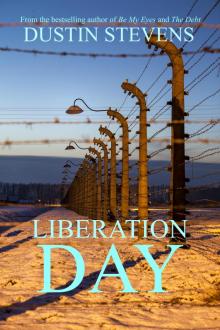 Liberation Day - A Thorn Byrd Novel
Liberation Day - A Thorn Byrd Novel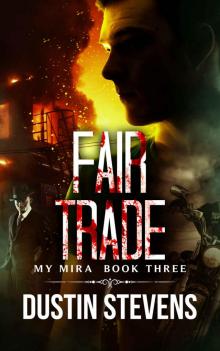 Fair Trade
Fair Trade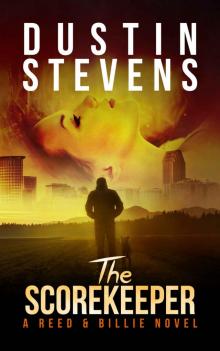 The Scorekeeper
The Scorekeeper Wild Fire: A Suspense Thriller (A Hawk Tate Novel Book 6)
Wild Fire: A Suspense Thriller (A Hawk Tate Novel Book 6)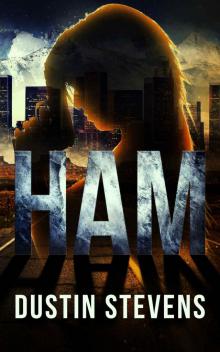 Ham
Ham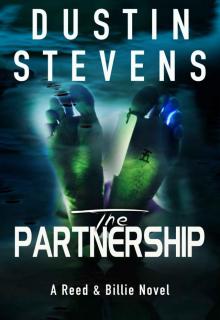 The Partnership
The Partnership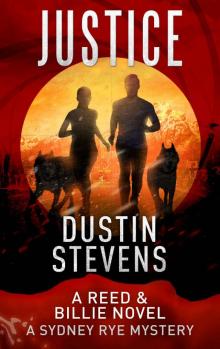 Justice
Justice The Subway
The Subway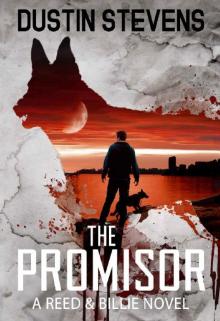 The Promisor: A Suspense Thriller
The Promisor: A Suspense Thriller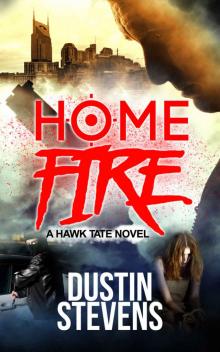 Home Fire: A Suspense Thriller (A Hawk Tate Novel Book 5)
Home Fire: A Suspense Thriller (A Hawk Tate Novel Book 5)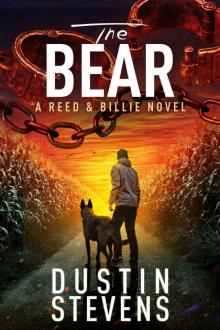 The Bear
The Bear Battle Cry
Battle Cry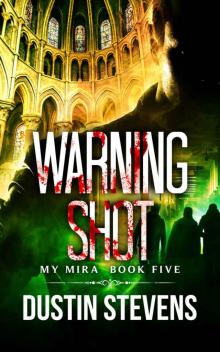 Warning Shot
Warning Shot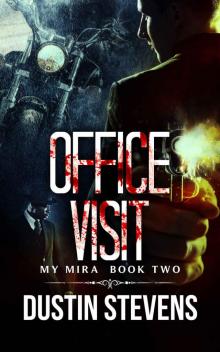 Office Visit
Office Visit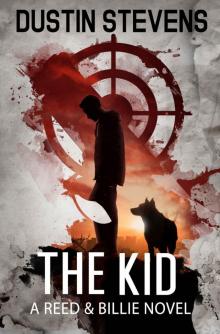 The Kid: A Suspense Thriller (A Reed & Billie Novel Book 3)
The Kid: A Suspense Thriller (A Reed & Billie Novel Book 3)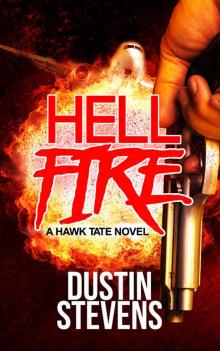 Hellfire: A Suspense Thriller (A Hawk Tate Novel Book 4)
Hellfire: A Suspense Thriller (A Hawk Tate Novel Book 4)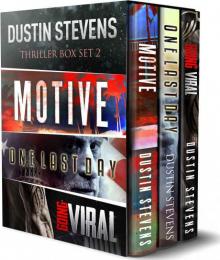 Motive ; One Last Day ; Going Viral
Motive ; One Last Day ; Going Viral The Subway ; The Debt ; Catastrophic
The Subway ; The Debt ; Catastrophic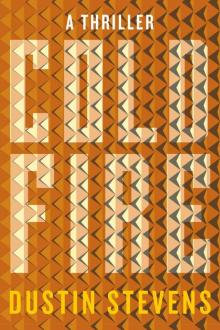 Cold Fire
Cold Fire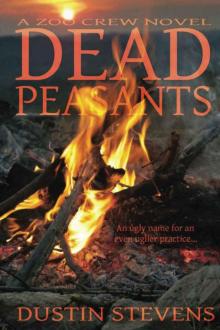 Dead Peasants (Zoo Crew series Book 2)
Dead Peasants (Zoo Crew series Book 2) Thriller Box Set One: The Subway-The Debt-Catastrophic
Thriller Box Set One: The Subway-The Debt-Catastrophic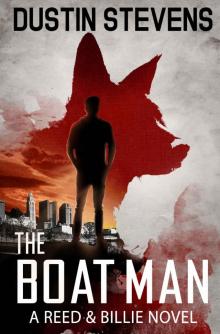 The Boat Man: A Suspense Thriller (A Reed & Billie Novel Book 1)
The Boat Man: A Suspense Thriller (A Reed & Billie Novel Book 1) The Zoo Crew (Zoo Crew series Book 1)
The Zoo Crew (Zoo Crew series Book 1) Twelve
Twelve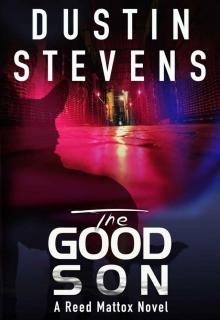 The Good Son: A Suspense Thriller (A Reed & Billie Novel Book 2)
The Good Son: A Suspense Thriller (A Reed & Billie Novel Book 2) The Boat Man: A Thriller (A Reed & Billie Novel Book 1)
The Boat Man: A Thriller (A Reed & Billie Novel Book 1) Scars and Stars
Scars and Stars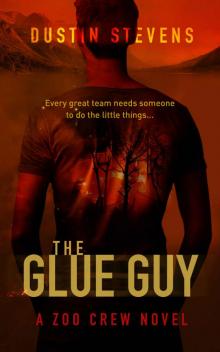 The Glue Guy: The Zoo Crew Series Book 4
The Glue Guy: The Zoo Crew Series Book 4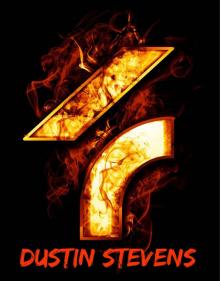 Four
Four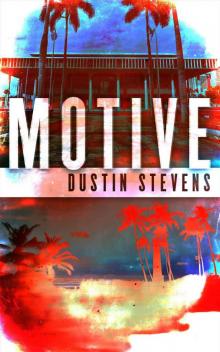 Motive
Motive 21 Hours
21 Hours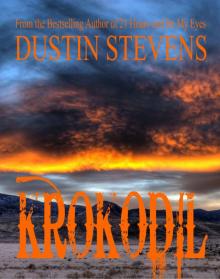 Krokodil
Krokodil Ohana
Ohana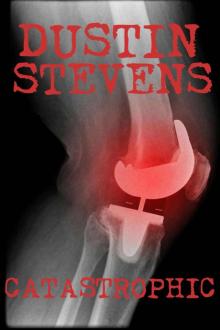 Catastrophic
Catastrophic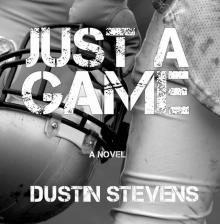 Just A Game
Just A Game Quarterback
Quarterback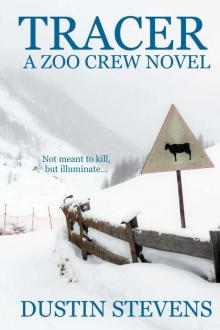 Tracer
Tracer Fire and Ice: A Thriller (A Hawk Tate Novel Book 3)
Fire and Ice: A Thriller (A Hawk Tate Novel Book 3)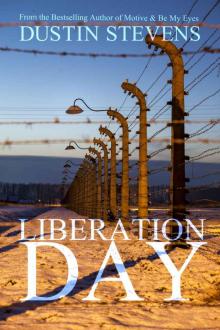 Liberation Day
Liberation Day